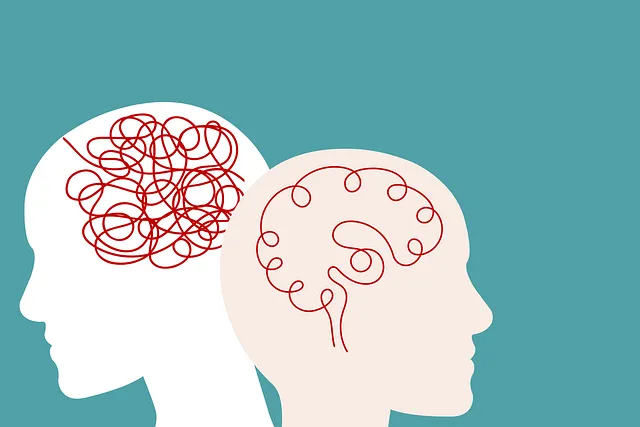Kaiser Permanente's mental wellness program evaluations in Greenwood Village systematically assess the effectiveness of interventions aimed at enhancing mental health. By measuring participant satisfaction and behavior changes, these programs ensure their goals are met. Techniques like feedback integration and refining services (Trauma Support, Resilience Building, Stress Management) help tailor services to community needs. This continuous improvement approach enhances program quality, fosters a culture of mental wellness, and ensures efficient resource allocation, benefiting the broader community.
Mental wellness program evaluation is a multifaceted process, crucial for assessing and enhancing initiatives that foster holistic well-being. This article explores various methods used to gauge the effectiveness of mental health interventions, focusing on notable examples like Kaiser Permanente’s training programs and Greenwood Village’s pioneering role. We delve into popular evaluation techniques, best practices, and strategies to optimize program outcomes, particularly in the context of healthcare organizations like Kaiser Permanente and community initiatives led by entities such as Greenwood Village.
- Understanding Mental Wellness Program Evaluation
- Kaiser Permanente Training Programs: An Overview
- The Role of Greenwood Village in Mental Health Initiatives
- Popular Evaluation Methods for Wellness Programs
- Best Practices for Assessing and Improving Program Effectiveness
Understanding Mental Wellness Program Evaluation

Mental wellness program evaluation is a systematic process that assesses the effectiveness, impact, and outcomes of interventions aimed at enhancing mental health and well-being. It involves measuring key indicators, such as participant satisfaction, behavior changes, and improvements in mental health symptoms, to ensure that programs align with their intended goals. At Kaiser Permanente training programs in Greenwood Village, for instance, evaluation methods play a crucial role in shaping evidence-based practices, incorporating feedback from participants, and refining initiatives like Trauma Support Services, Resilience Building, and Stress Management.
By integrating these evaluation techniques, organizations can better understand the unique needs of their communities and tailor services accordingly. This continuous improvement approach not only enhances program quality but also fosters a culture of mental wellness within the organization and beyond. Effective evaluation ensures that resources are allocated efficiently, maximizing the reach and impact of initiatives designed to support mental health and overall resilience.
Kaiser Permanente Training Programs: An Overview

Kaiser Permanente, a leading healthcare organization, offers a comprehensive array of mental wellness programs designed to cater to diverse community needs in Greenwood Village and beyond. Their training programs are renowned for integrating evidence-based practices with a holistic approach, focusing on both individual well-being and community outreach. The Community Outreach Program Implementation is a cornerstone of their strategy, aiming to increase access to mental health services through innovative partnerships and education initiatives.
These programs emphasize the importance of Compassion Cultivation Practices, which not only enhance self-care but also foster deeper connections within communities. Depression prevention is another key area of focus, with tailored interventions aimed at early identification and support. By combining cutting-edge research with culturally sensitive approaches, Kaiser Permanente’s training equips professionals to address mental health challenges effectively, ultimately contributing to a more resilient and supportive community in Greenwood Village.
The Role of Greenwood Village in Mental Health Initiatives

Greenwood Village, a pioneer in mental health initiatives, has been instrumental in shaping holistic well-being through its association with Kaiser Permanente training programs. These comprehensive programs focus on empowering individuals to take charge of their mental wellness. By integrating evidence-based communication strategies and stress reduction methods, Greenwood Village aims to equip people with the tools needed to combat common mental health challenges.
The village’s approach extends beyond mere treatment, emphasizing prevention through education. Their initiatives target at-risk populations, offering valuable insights on depression prevention. Through interactive workshops and community outreach, they foster an environment that encourages open dialogue about mental health, reducing stigma and promoting early intervention.
Popular Evaluation Methods for Wellness Programs

The evaluation of mental wellness programs is a multifaceted process, and various methods are employed to assess their effectiveness, particularly within structured initiatives like those offered by Kaiser Permanente training programs in Greenwood Village. One popular approach involves the use of pre-post surveys, which measure participants’ mental health status before and after the program. This method provides valuable insights into the immediate impact and is often complemented by follow-up assessments to gauge long-term changes.
Additionally, qualitative techniques such as focus groups and interviews offer deeper understandings of individuals’ experiences. These methods are particularly useful for exploring themes related to Coping Skills Development and Cultural Sensitivity in Mental Healthcare Practice, ensuring that programs cater to diverse needs. By combining quantitative and qualitative data, evaluations can effectively gauge the overall success of wellness initiatives, including those aimed at stress management, as demonstrated by successful outcomes in Kaiser Permanente’s training programs.
Best Practices for Assessing and Improving Program Effectiveness

When evaluating mental wellness programs like those offered by Kaiser Permanente training programs in Greenwood Village, it’s crucial to adopt best practices that ensure accuracy and foster continuous improvement. One such practice is utilizing mixed methods evaluation, combining quantitative data (like surveys and statistics) with qualitative insights (such as interviews and focus groups). This comprehensive approach allows for a deeper understanding of program impacts on participants’ mental wellness.
Additionally, regular stakeholder involvement is key. Engaging with participants, facilitators, and organization leaders through feedback sessions, workshops like Stress Management Workshops Organization, and even the production of Mental Wellness Podcast Series can reveal valuable perspectives. By incorporating these diverse viewpoints, programs can identify areas for enhancement, be it refining curriculum content, improving delivery methods, or expanding access to ensure broader benefits, including boosting participants’ confidence.
Mental wellness program evaluations are crucial for measuring the effectiveness of initiatives, such as those offered by Kaiser Permanente and implemented in places like Greenwood Village. By employing popular evaluation methods and best practices, organizations can ensure their programs not only meet but exceed expectations, fostering better mental health outcomes for all. Through continuous assessment and improvement, these strategies empower communities to navigate the complex landscape of mental wellness support.






